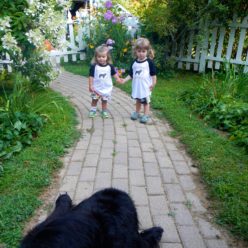Though I won’t have time until this summer to deeply explore the 2014 Horizon Report which I alluded to in an earlier post, I wanted to share some initial reactions here:
- I concur with the Report’s assertion of the growing ubiquity of social media. The challenge for me is to find the right balance between the kinds of deep thinking which I believe “more traditional teaching methods” correctly implemented can foster and an ability to capitalize on the enabling capabilities of social media for producing, communicating,creating, and collaborating. I don’t find that my present institution has the appropriate classroom infra-structure for leveraging these social media tools within the physical classroom and traditional class-room meeting time.
- I agree with the Report’s suggestion that that it is inevitable that higher education must allow and facilitate an integration of online, hybrid, and collaborative learning.
- Though I have always been interested in “adaptive” learning and personalizing the learning environment, I find the promises of “an emerging science of learning analytics” overblown, premature, and creepy in terms of degrees of invasion of privacy.
- I applaud and embrace the identified trend of students as creators rather than merely as consumers though I would urge that one not lose sight of the importance of quality control of their products.
- I concur that the time is ripe for university programs to support aggressively “agile, lean startup models” that promote a culture of innovation in a more wide-spread, cost-effective way as long as there are built in assessment procedures which validly document the weaknesses and strengths of these (maybe) new approaches. Too often I have seen institutions chase after the latest educational fad and fail to benefit from organizational memory of prior, similar failed ventures.
- For me, online learning is a useful complement rather than a viable alternative to most forms of face-to-face learning. As I’ve written earlier, I regularly and increasingly use “nontraditional” learning tools to supplement my personal professional development and my digital literacy. I am still sorting out, however, how to embed and assess that literacy among my students. In what venues I should foster those kinds of skills and intrude them to top learning tools. I am increasing wary of a “digital divide” that ironically exists between K-12 and higher education instructors with the latter—and their students—being the more deficient!
What do you think? I’m also interested in readers’ suggestions about what I should write:
